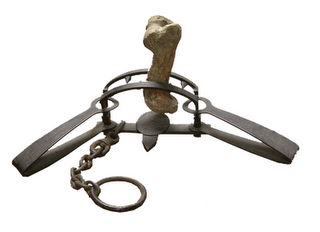This is a helpful bit of information that a fellow estate planning colleague posted from his law offices in Montana. He’s relatively new to blogging, but I think he’s done well with this information in a summary format. I am reposting his information to share with you.
I seem to be on a roll this morning over the pitfalls of do-it-yourself estate planning. Here is list of Common Pitfalls and Traps I’ve had in my basic estate planning handout for clients:
1. “I’m too young to worry.” Reality: If you die young with a spouse and/or children you need to protect your loved ones. Also, by planning early you have the power of leverage/appreciation.
2. “My estate is too small.” Reality: If not planned, a smaller estate can suffer greater percentage shrinkage than a large estate due to increased administration costs necessary in a non-planned estate.
3. “I’m leaving everything to my spouse, so estate tax doesn’t matter.” Reality: Leaving everything to a spouse just postpones tax and wastes the dead spouse’s estate tax “coupon”: Wasting a coupon meant wasting $1,575,000 in tax savings in 2009.
4. Believing one size fits all. Corollary: You get what you pay for.
5. Not paying attention to who you have on what and how: Beneficiaries of life insurance, annuities and retirement accounts. Wrong people get the wrong property.
6. Failing to consider trusts as vehicles to pass wealth during life or at death. Convenience trusts, irrevocable life insurance trusts, “Crummey” power trusts, intentionally defective grantor trusts, GRATs, QPRTs (for cabins or vacation homes).
7. Not planning for your disability; not avoiding a “living probate”.
8. Not having any will or trust, handwriting it yourself, or having them prepared without proper analysis for your situation.
9. Too much in joint tenancy with right of survivorship; disproportionate ownership by husband & wife. Joint tenancy is convenient but it can ruin an estate plan if not used correctly.
10. Failing to name guardian of minor children.
11. Failing to prepare business succession plan.
12. Failing to plan for estate liquidity and/or tax payment alternatives.
13. Having too little life insurance. If you, the money maker dies, what is your family going to live on? Often life insurance is the only affordable way to solve the problem.
14. Not realizing life insurance you own on your own life is included in taxable estate for federal estate tax. While the proceeds may be income tax free, they are not necessarily estate tax free if you own a policy on your life.
15. Not considering lifetime gifting program: Children, grandchildren, charitable techniques.
16. Not considering alternative operating entities.
17. Procrastination: Letting indecision lead to inaction. Usually, doing something is better than doing nothing. See my post below on How to Avoid Vapor Lock.
18. Lack of Communication. While your estate is private, you should discuss matters with those you intend to have care for you or handle your affairs after your death. Often better planning happens when the younger generation is included and aware of what’s going to happen.
19. Not keeping estate plan up to date. You should review your estate plan at least every few years.
20. Believing a magic bullet exists or “This won’t happen to us.”
21. BEWARE of “constitutional,” “pure,” or “common law” trust schemes.
Remember: If it sounds too good to be true, it is.

